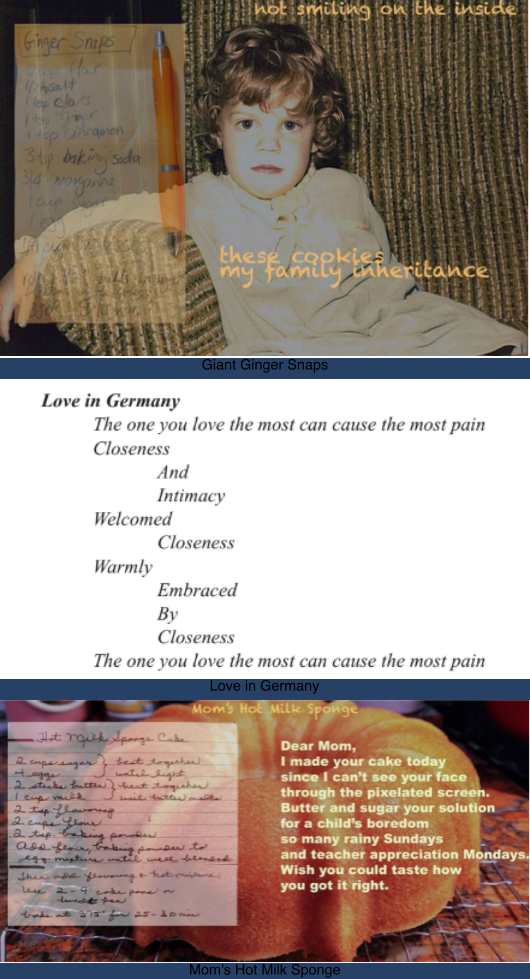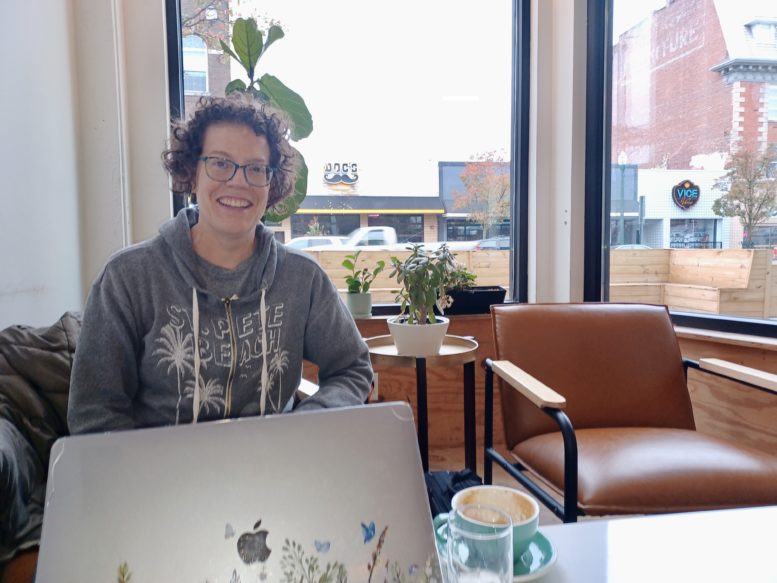By MEGAN SUTHERLAND
How do women experience close relationships over a lifetime? And how does a researcher go about answering such a question? Sandra Faulkner, a professor of Communication Studies at BGSU, is on the frontier of exploring new research methods to investigate questions such as this, using an unexpected
approach – poetry.
Faulkner’s field of study is relational communication with a focus on relationships among culture, identities, and sexualities; she is an experienced qualitative researcher, and she also writes poetry.
Although these disciplines may seem at first to be incongruent, she has found they can greatly enhance one another.
[RELATED: Poetry in motion – Sandra Faulkner explores link between women & running]
Faulkner has been teaching graduate and undergraduate students at BGSU for almost 15 years. Her classes focus primarily on relational communication, which is the study of relational processes in our close relationships. She also teaches research methods, “primarily qualitative research methods, with a
focus on art-based research. So, this is the use of artistic forms both visual and literary in the service of research,” she explains.
One of these art-based research methods that she quite literally wrote the book on, is that of poetic inquiry. Poetic inquiry is a way in which poems are used to represent the responses collected in an interview or an individual’s spoken narrative. It is a way of presenting an interview that reflects not just the words spoken, but also the feeling behind those words.
To understand this method and its real-world applications we can look to a current research project being conducted by her graduate students. The project focuses on the experiences of 13 local women, ages 62 to 86, as they recount their close relationships through their lifetime, from childhood to current day.
[RELATED: Project to create ‘poetic portraits’ of older women]
Faulkner worked closely with colleague, Wendy Watson, Associate Professor of Gerontology at BGSU, to craft the project and the call was put out in early September in the BG area for women, ages 60+ who were interested in participating. These women then shared their stories in an interview with Faulkner and a graduate student, from which a traditional transcript was created.
And here is where the poetry enters the research. Students first write a traditional transcript. From this, they write a poetic transcript, which uses the interviewee’s words, selected and spaced, to convey the feel of the interview. Students ask themselves, is there a way to arrange the words on the page that, “create the rhythm of the speaker’s voice,” and reflect “the way that the interview felt?” Faulkner says. “Where they place the words on the page is a way to emphasize something that seemed particularly important as they were listening to the person’s story.”
From this poetic transcript, they will create a poem to capture the strongest feelings, themes, and messages of the interview. This poem will be coupled with the artistic use of meaningful photos provided the interviewee. The result is a poetic portraiture that reflects the interview and participant in a way that cannot be captured by traditional research methods.
“There’s something that art forms do when you experience them,” Faulkner says. When people hear poetry spoken, there is often a “visceral response from people. Sometimes when there’s a really good line, you can hear people in the audience respond. Sometimes it’s because a specific detail resonated

with you and becomes an almost universal theme.. and that’s what we’re trying to evoke. That’s what poetry can to do well. It can be an embodiment experience; it can articulate things that aren’t easily said in other forms.”
Faulkner’s graduate students will be presenting their final poetic portraitures, in a broadside format, to the research project’s participants in a celebration at the Wood County Senior Center in December 2022, along with a gift card to Grounds to Thought, to thank them for sharing their stories and participating in the project.
Faulker is excited for the possibilities that poetic inquiry can offer the field of qualitative research and relational communication studies, and it seems she’s not the only one. In November of 2022, she will be awarded the Legacy Award from the Ethnography Division National Communication Association. This is the most recent award in the list of accolades that her work has been increasingly receiving.
She also looks forward to the see the impact that this work has in her hometown, as participants and students share their completed projects on Wednesday, Dec. 7, 3-5:30 p.m. at the senior center in Bowling Green.
Beyond that she hopes to continue the application of this work, using poetic portraiture to collect and preserve women’s experiences, in their own words, for future generations to both read and feel.

